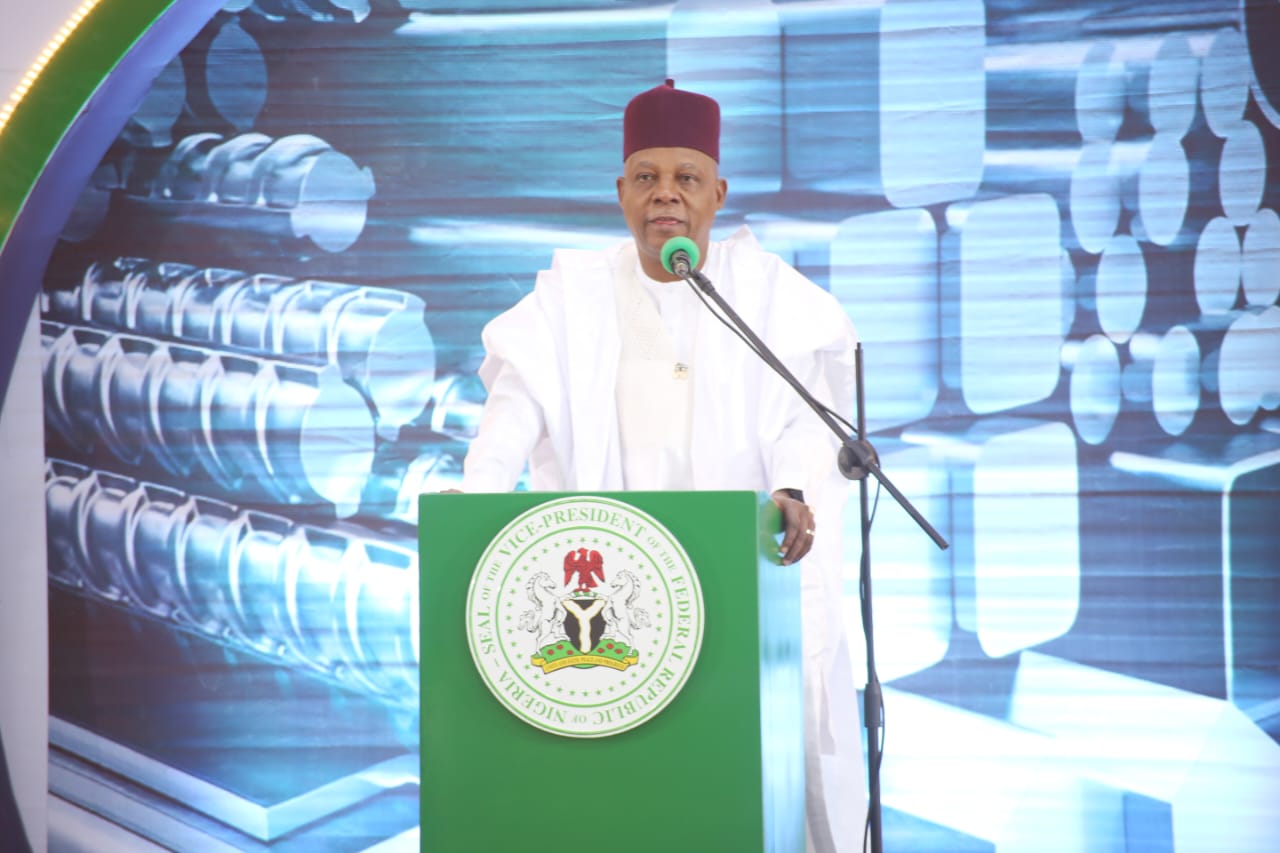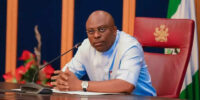From Charity Nwakaudu, Abuja
President Bola Ahmed Tinubu says Nigeria is set to produce ten million tonnes of liquid steel and generate over 500,000 jobs in the industry by 2030 for a self-reliant and industrialised nation.
President Tinubu stated this at the 2025 Steel Summit themed “Rebuilding and Consolidating Nigeria’s Steel Industry in Collaborative Action for Sustainable Growth and Global Competitiveness” in Abuja.
The President, who was represented by Vice President Kashim Shettima, added that the steel industry is the key to unlocking Nigeria’s potential as it symbolises so many unrealised hopes.
President Tinubu insisted that the present administration has laid a robust foundation for the revitalisation of Nigeria’s steel industry through strategic policy decisions, substantial investments, international collaborations, and intensified efforts to foster private sector participation in driving economic growth.
“To ensure a structured development, the administration has outlined comprehensive roadmaps such as a ten-year plan for the overall revival of Nigeria’s steel sector as well as a three-year specific plan for the operationalisation of the Ajaokuta Steel Plant,” he noted.
“These plans encompass infrastructure development, regulatory reforms, and capacity building to foster a conducive environment for the steel industry’s growth.”
President Tinubu called for synergy among stakeholders in the steel sector to surmount the challenges facing the industry in Nigeria.
On his part, the Chairman Senate Committee on Steel Development, Patrick Ndubueze, pledged the Senate’s unwavering support for the growth and revitalisation of Nigeria’s steel sector, urging stakeholders to turn ideas into tangible actions.
In his welcome address, the Minister of Steel Development, Prince Shuaibu Abubakar Audu, explained that the key priority areas of President Bola Ahmed Tinubu’s administration include reforming the economy to deliver sustained inclusive growth, strengthening national security for peace and prosperity, boosting agriculture to achieve food security, and unlocking energy and natural resources for sustainable development.
In his presentation, the Minister of Solid Minerals Development, Dr. Oladele Alake, who emphasised that the era of business as usual is gone, stressed that the solid mineral sector is no longer a playground for opportunists but a driver of national and industrial growth and continental leadership.
Similarly, Minister of Transportation, Sa’idu Ahmed Alkali, described the summit as a timely forum to implement the 10-year national steel roadmap, optimise private steel rolling mills, and leverage Nigeria’s vast natural resources within a strong regulatory framework.
Also, the Minister of Industry, Trade, and Investment, Olajumoke Oduwole, emphasised the untapped potential across the steel value chain, from iron ore mining to steel rolling, fabrication, and production of critical inputs for construction, automotive, energy, and manufacturing sectors. She noted that domestic value addition, international partnerships, technology transfer, and targeted reforms will reduce import dependence, create jobs, and build Nigeria’s path toward a $1 trillion economy by 2030.
Earlier in his welcome address, the Permanent Secretary of the Ministry of Steel Development, Dr. Chris Isokpunwu, said the summit will engage robust discussions, share innovative ideas, and deliberate on practical solutions to reposition the steel sector for global competitiveness.
There were goodwill messages from the Ministers of Marine and Blue Economy, Trade and Investment, Transportation, Finance, among others.


















Leave a comment